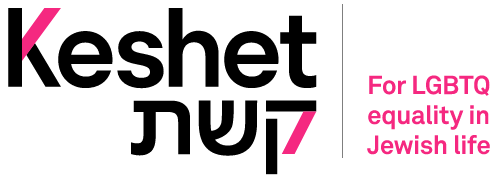Looking Over the Jordan: Reflections on a Career
Yom Kippur 5784
Moses went up from the steppes of Moab to Mount Nebo, to the summit of Pisgah, opposite Jericho, and הי showed him the whole land: Gilead as far as Dan; all Naphtali; the land of Ephraim and Manasseh; the whole land of Judah as far as the Western Sea;the Negeb; and the Plain—the Valley of Jericho, the city of palm trees—as far as Zoar.
And ה׳ said to him, “This is the land of which I swore to Abraham, Isaac, and Jacob, ‘I will assign it to your offspring.’ I have let you see it with your own eyes, but you shall not cross there.”
What must Moshe have been thinking as he stood at the top of Har Nevo, looking over the land that with every ounce of his being, he had worked to attain? Was he thinking of the past; of his many achievements as well as his failures during the past 120 years? Was he thinking of his youth in Pharaoh’s palace, and of his return to the palace, this time as a partner to a newly revealed God? Did he ponder God’s insistence that he help free his newly found people from his adopted family’s enslavement policy, and bring them to land promised to ancestors he had never known and was only just discovering? Going over his years in the desert, was he ruminating on how he might have been a more effective leader, spouse and father?
I imagine that prominent in his thoughts was that moment that he decided to step aside from the trail because he thought he saw a burning bush. Perhaps he rolled his eyes heavenward and thought, ‘if only I had stuck to the sheep…’ or, maybe he thought, ‘wow! That was pretty amazing; now I don’t have to figure out what I’m going to do for the rest of my life! How fun - I’ll get to work with my siblings and camp out too!'
As he looked over the land, maybe he was thinking about the times that he was able to comfort his community when they were hungry, or lost, or even when they encountered the Divine. Perhaps he thought about the time on Mount Sinai, as God prepared to deliver the Aseret Ha Dibrot to the people, when all of Israel stood in fear and awe at the base of Mount Sinai, and begged him to be their representative to a Force that was both comforting and terrifying at the same time. As it says in (Ex 20:15-)
All the people witnessed the thunder and lightning, the blare of the horn and the mountain smoking; and when the people saw it, they fell back and stood at a distance.
“You speak to us,” they said to Moses, “and we will obey; but let not God speak to us, lest we die.”
Moses answered the people, “Be not afraid; for God has come only in order to test you, and in order that the fear of God may be ever with you, so that you do not go astray.”So the people remained at a distance, while Moses approached the thick cloud where God was.
Looking over that great expanse, he must have reflected on the many struggles and frustrations he had experienced both with his fellow Israelites and with God; the complaints, the never ceasing demands, and the mystery of working for the One whose presence could not be seen. Again, I quote from Exodus: (Ex 33:12-18)
Moses said to ה׳, “See, You say to me, ‘Lead this people forward,’ but You have not made known to me whom You will send with me. Further, You have said, ‘I have singled you out by name, and you have, indeed, gained My favor.’
Now, if I have truly gained Your favor, pray let me know Your ways, that I may know You and continue in Your favor. Consider, too, that this nation is Your people.”
And [God] said, “I will go in the lead and will lighten your burden.”
And he replied, “Unless You go in the lead, do not make us leave this place.
For how shall it be known that Your people have gained Your favor unless You go with us, so that we may be distinguished, Your people and I, from every people on the face of the earth?”
And ‘ה said to Moses, “I will also do this thing that you have asked; for you have truly gained My favor and I have singled you out by name.” He said, “Oh, let me behold Your Presence!”
Finally, as he looked over the land that he would never inhabit, was he excited for the future of those with whom he had journeyed over his 40 plus years? Was he somewhat wistful about those things that he knew he could still do, but would not be his to carry out? Was he relieved that the big problems were not his any longer and that Joshua would be a great leader?
I imagine Moshe Rebbenu had all these thoughts and more. I know that I do, as I think of the last, almost 30 years at TBE, the 6 years before that at Mount Holyoke College, the 7 years of study and the many years of wanting to be a rabbi even when it was unavailable to women. Moshe, like all good prophets, was a bit of an unwilling leader, though he was an early opponent of abusing laborers. My purpose in becoming a rabbi also was not for the leadership aspect, but because I loved being engaged in the pursuit of the Divine. I loved the texts, I loved the prayer, I loved the lifestyle, I loved the sense of having community all over the globe. It made no sense to my family - or even to myself. It just was. My mistake was that I thought only rabbis engaged in the pursuit, it didn’t dawn on me that “normal people” might also be part of the journey! One of my many goals has been to introduce regular people - all of us - to the beauty and depth of our Tradition and to assure us that we are absolutely capable of serious engagement with the many aspects of Judaism. Like Moses, the Rabbis whom I have admired and who have mentored me, have also been humble and have also been willing to stand up for the oppressed. They did not go into the rabbinate to find fame and/or fortune. I think they did it out of a sense of love. Needless to say, the rabbinate is both demanding and fulfilling. Time and emotions are spent caring about the whole community, both individuals and the larger community. While I never could have anticipated the extreme highs and extreme lows of this position, I have never doubted my choice. God did not have to coerce or cajole me to take on the role. I chose it (though I believe the Divine hand was in there somewhere) As I look back, though, I have a few wishes: I wish I had been able to enjoy rabbinical school a little more. I wish I had been more prepared to enter into a male centered profession. I wish the communities we entered had been more prepared to work with female professionals. I wish I had been a little more patient, understanding and bold during difficult conversations. I wish I was kinder to myself. I wish we could have been a more unified and happier community earlier on, and you guessed it - I wish everyone loved coming to services and singing! But, as I look back, all those wishes have become opportunities for learning. I have grown, you have grown, and together we share a wonderful community - one that cares, that is supportive of the community as a whole, and that is increasingly connected to one another.
The future: In Moshe’s last moments Adonai took him and Joshua into the Tent of Meeting and spoke of the future without Moses and in the promised land: (Dt. 31 16-21)
You are soon to lie with your ancestors. This people will thereupon go astray after the alien gods in their midst, in the land that they are about to enter; they will forsake Me and break My covenant that I made with them.Then My anger will flare up against them, and I will abandon them and hide My countenance from them…Therefore, write down this poem and teach it to the people of Israel; put it in their mouths, in order that this poem may be My witness against the people of Israel.
When I bring them into the land flowing with milk and honey that I promised on oath to their fathers, and they eat their fill and grow fat and turn to other gods and serve them, spurning Me and breaking My covenant, and the many evils and troubles befall them—then this poem shall confront them as a witness, since it will never be lost from the mouth of their offspring…
Is this what Moshe really wants to hear as he looks to the future? At the very point that he is reviewing his past, and his life’s work? I would think that it would be difficult to hear - especially from God - that ultimately your work made little or no difference, and that the generation that you led would reject the very core values you worked so hard to engender. But maybe that’s the wrong message. Perhaps God just needed a partner to vent with, since it would be God’s failure as well. Or perhaps God intended to make Moses feel better; ‘Oh, don’t worry about leaving your people at the border, you did a great job, and without you, it will probably fall apart.’ Or are Moses and Joshua privy to God’s use of reverse psychology? Maybe, God thinks, if Moses and Joshua pass on this news, the people will be inspired to prove Me wrong and will, in fact, honor the covenant. God’s concern, though, is one that I ponder daily.
I am speaking with you honestly, as I say that one of the most challenging aspects of my rabbinate has been trying to balance passing on the “Tradition” when it doesn’t mix with the reality of our lives here in 2023 Maine. I find myself wrestling with what I should ‘require’ and what I should let go; and then, if I let it go..is it gone forever? For example, how many of us understand the concept of mitzvah as only a good deed and how many of us see it as an obligation in our religion. And even if we see it as both (which we probably do), when might we honor the obligatory nature of mitzvah, and when do we put that aside? And if we put the ‘obligatory’ part aside, will it be lost? But if we simply follow traditions when they feel meaningless, or because we are told to do them, how does that enhance our lives? I think that was the challenge in Moses’ day and continues in ours. The real question for each one of us is to ask why we do or why we do not follow a Tradition. And so I teach and try to practice a more traditional approach, with the hope that others will make their own decisions and without judgment. For me, one of the attractions of Judaism is our intellectual AND experiential approach. Just thinking about mitzvot doesn’t “cut it.” We have to act, as well. Judaism is a living religion. We must hold to our core values, which include in no particular order - justice, community, covenant and a relationship with Divinity in the world, even if it is a non-relationship, and with the caveat that Divinity is broadly, but Jewishly, interpreted.
I’m sure it’s obvious that as I look at Moshe on top of Mount Nebo, I can relate to him. Perhaps, wherever you are in life right now, you do as well. Obviously, I am no Moses, but each one of us has Moses-ness in us. Moses’ work was to partner with God and the Children of Israel, to create an ethical, somewhat organized society based the teachings of what was then a new idea. No matter where we are in life, that is our work as well. Some may call it Tikkun Olam, some may call it observing mitzvot, some call it activism, and advocacy, but I believe it is a life of holiness, practiced in community and as individuals, and I believe we are all doing it. Hopefully, you have all seen, or will see, a “burning bush” that sparks your interest and your passion and calls you to move towards it, and heed it’s message. That “bush” may not make logical sense intellectually, but it stirs our hearts and souls in ways we never anticipated. I always believe that when my life takes an unplanned turn, God’s hand is in it. I never expected to be the Rabbi of a congregation. In fact, I was worried that I would not be accepted to rabbinical school if I told them that I didn’t want to be a pulpit rabbi! When I came to Temple Beth El, I believe the bets were on 2 to 5 years; at least that’s what my Emeritus told me! Who knew that 30 years and a few unsent resignation letters later, I would be standing here feeling the sadness, the happiness, the excitement, the worry and the profound satisfaction and gratefulness for this holy opportunity I’ve had with all of you and with those who came before you.
May we continue to go from strength to strength in the following years. May 5784 bring you joy and satisfaction. May your burning bush warm and enlighten your soul. L’shanah tovah umetukah - may you have a sweet new year and a G’mar tov, a good ending to the holiday season.
Remember God’s words to Moses: “they will forsake Me and break My covenant that I made with them” My hope for you and for all of us is to prove God wrong…



